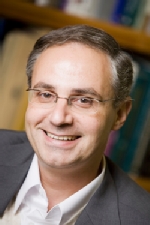Tuesday, January 19
| 10:00 a.m.-11:30 a.m. | Spring Semester Opening Day, Montag Den To kick off ICL Spring Opening Day, join the group for coffee and refreshments at 10 a.m. **Please wear your name tag!**
|
| 11:30 a.m.–12:30 p.m. | Opening Day Introduction of New ICL Members and Announcements, Montag Den Description TBA |
| 1:30–2:30 p.m. | "A Story of Change and Adaptation," Shamir Cervantes [Jeanette Flaming], Ford 122
Shamir’s major is Rhetoric and Media Studies. He is on the debate team and traveled to China last summer with WU professor Robert Trapp, organizer, for the invitational debate competition in China. Shamir first met Professor Trapp during the summer of his Freshman year of high school, when the two of them travelled to a high school debate tournament in Bosnia and Herzegovina; the experience left Shamir with a lasting interest in language and argumentation. During the summer following his senior year of high school, he worked with a local civil rights organization to develop a mock-trial program for underrepresented youth. Owing to Shamir’s busy college schedule, two retired judges, including the Honorable Paul DeMuniz, are now directing this program. During the past semester Shamir worked on his thesis, which is focused on a speech given by a masked man known as Subcomandante Marcos (his true identity is unknown), who gained fame as the leader of an armed revolutionary group in Southern Mexico. He soon became a pacifist and began to use his group of followers to improve the lives of peasant communities without government support. When capable leaders began to emerge from the communities he worked with, he felt his work was accomplished so he ‘retired.’ In the speech analyzed by Shamir, Marcos resigned his leadership position and changed his public name, but kept his mask to remain unidentifiable. Shamir was born in southern Mexico of the indigenous people. His family moved to California when he was 4 and then to Salem when he was 8. Today, he will share with us his experiences, observations, thoughts, plans and dreams. |
| 2:30–3:30 p.m. | "The Queen of the Sciences: A History of Mathematics,"Video Lecture by Dr. David M. Bressoud, Macalester College [Bob Muir], Ford 122 This is the first lecture in a Teaching Company course on the history of mathematics. It will explore the nature of mathematics, which arose from the abstraction of patterns evident in the world and which developed as those abstractions were codified into symbolic systems and pushed beyond practical applications. Why is it that mathematical ideas in one area can lead to unexpected insights when applied to a totally different area? Exploring the history of mathematics helps us to understand the true nature and power of mathematics. The lecture will end with an overview of the course.
|
Thursday, January 21
| 10:30 a.m.-12:30 p.m. | "The Secret History of Underground Salem," John Ritter [Sharon Johnson], Ford 122
He earned his undergraduate degree in history at the University of Portland and later earned four master's degrees — two in history, one in geography and one in special education. Before teaching at the college level, he taught at the Oregon State Penitentiary and Oregon State Hospital. He met his wife, Linda, at the state hospital, where she was an activity therapist and librarian. He has been an adjunct professor at Linfield College and at Corban University. |
| 1:30-2:30 p.m. | Language Video presentation: "What is Black English?", John McWhorter [Jinx Brandt], Ford 122
Using insights developed in the course to this point, Professor McWhorter takes a fresh look at Black English, tracing its roots to regional English spoken in Britain and Ireland several centuries ago. Our ICL host is Vernelle Judy. |
| 2:30–3:30 p.m. | "Preparedness - Get a Plan! Get a Kit! Get Involved!" Roger Stevenson [Joyce Zook], Ford 122 When disaster strikes are you prepared to be on your own for up to 14 days? Our presentation will describe the steps necessary to; prepare for, respond to and recover from, major disasters that may befall you and your family. Disasters are all survivable if we implement proper preparedness measures today.
Roger Stevenson is City of Salem Emergency Manager. He comes to us with a varied background. After attaining his Bachelor of Science degree in Marine Biology in Southern California, Roger started his working career at Sea World in San Diego working as a veterinary assistant with marine mammals. Transitioning to a 26 year career in Regional Retail Management culminating as owner of a marketing company. Finally finding a niche in Emergency Management for the last 30 years, he has provided emergency planning, training and exercising for an area as large as 4000 square miles and 20 cities. Roger and his wife have lived in Salem for the past 17 years. He works for the Salem Fire Department which supports the city’s Emergency Management programs. Roger is an exuberant speaker and enthusiastic about the health and safety of others. |
Tuesday, January 26
| 10:30 a.m.-12:30 p.m. | "Great Decisions, The U.S. and Africa" (p.55 of the 2015 text) [Jeanette Flaming], Ford 122 "Africa is in the midst of an unprecedented transformation. The continent is home to some of the fastest growing economies in the world, and it has become a draw for foreign investors from across the globe. After the "Obamamania" of 2008 died down, though, the realization that Obama wasn't going to overturn, or even prioritize that continent, U.S. Africa policy kicked in. Still, the U.S. has promised to promote "strong institutions, not strong men", and to favor good governance and healthy economies over profit. How can U.S. policy live up to its promise and values while securing its interests in the region?" Hardin King, Tom Hibbard and Jeanette Flaming will be the presenters. |
| 1:30–3:30 p.m. | "How Sylvia Plath Pushed Me into Fiction," Kate Gray [Lois Rosen], Ford 122
Bio: For more than 25 years teaching at a community college, Kate Gray now works as a writing coach. Her first novel, Carry the Sky, (Forest Avenue Press, 2014) stares at bullying without blinking. Her book of poems, Another Sunset We Survive (2007), was a finalist for the Oregon Book Award and followed chapbooks, Bone-Knowing (2006, Gertrude Press Poetry Prize), and Where She Goes (2000, Blue Light Chapbook Prize). She’s been awarded residencies at Hedgbrook, Norcroft, and Soapstone, and a fellowship from the Oregon Literary Arts. She and her partner live in a purple house in Portland, Oregon with their sidekicks, Rafi and Wasco, two very patient dogs. |
Thursday, January 28
| 10:30 - 11:30 a.m. | "How to Listen To and Understand Great Music, Dr. Robert Greenberg, San Francisco Performances: The Concert Overture, Part I" [Solveig Holmquist], Ford 122 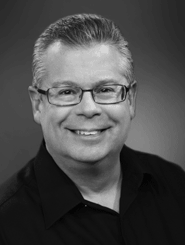
During the course of the 19th century, program music was cultivated in various forms and took on increasing specificity, as seen, for example, in the third movement of Mahler's Symphony #1. The 19th century revival of Shakespearean drama resonated with Romantic artists and inspired a great deal of program music, including Tchaikovsky's Romeo and Juliet. In this lecture and the next, we discuss Tchaikovsky, his compositional style, and his Overture-Fantasy, Romeo and Juliet of 1869.
|
| 11:30 a.m.-12:30 p.m. | "How to Listen To and Understand Great Music, Dr. Robert Greenberg, San Francisco Performances: The Concert Overture, Part II" [Solveig Holmquist], Ford 122  Many Romantic-Era composers used Classical-Era forms in one way or another. The expressive impact of Romantic-Era music was not antiquated or diluted by the use of Classical-Era forms. Tchaikovsky's adoption of Classical-Era sonata form for his Overture-Fantasy, Romeo and Juliet, in no way inhibits its powerfully Romantic expressivity. In this work, Tchaikovsky created a piece of music that can be appreciated both as abstract music and as program music. Many Romantic-Era composers used Classical-Era forms in one way or another. The expressive impact of Romantic-Era music was not antiquated or diluted by the use of Classical-Era forms. Tchaikovsky's adoption of Classical-Era sonata form for his Overture-Fantasy, Romeo and Juliet, in no way inhibits its powerfully Romantic expressivity. In this work, Tchaikovsky created a piece of music that can be appreciated both as abstract music and as program music. |
| 1:30 - 3:30 p.m. | "Leonardo da Vinci: Realities of a Myth," Ricardo De Mambro Santos [Sharon Wright], Ford 122 Painter, humanist and engineer, as well as creator of many theatrical costumes and set designs, Leonardo da Vinci became a myth shortly after his death in 1519. Praised by his contemporaries as a "universal man," Leonardo embodies the paradigm of creativity and innovation for 21st-century audiences. This lecture will explore different facets of Leonardo's activities in order to provide a historical understanding of some of his most notable works – such as the portrait known as "Mona Lisa" and his remarkable plans to reshape the city of Milan – stressing the crucial correlation of art, rhetoric and science in the Italian Renaissance.
Ricardo de Mambro Santos: Associate Professor of Art History Specialty: Italian and European Renaissance and Mannerism Education: Research and Teaching: |


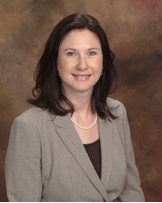 At 10:30 we will have a presentation by Jennifer Chambers, the Associate Vice President of Academic Affairs at Willamette University.
At 10:30 we will have a presentation by Jennifer Chambers, the Associate Vice President of Academic Affairs at Willamette University.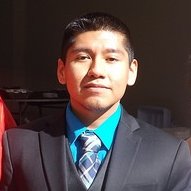 Shamir Cervantes is the Willamette University Student Body President this year. Nine years ago, following his 7th grade, Shamir was chosen to participate in the Willamette Academy, where he has been involved for five years. He graduated from McNary High School and is now in his 4th year as a Willamette student.
Shamir Cervantes is the Willamette University Student Body President this year. Nine years ago, following his 7th grade, Shamir was chosen to participate in the Willamette Academy, where he has been involved for five years. He graduated from McNary High School and is now in his 4th year as a Willamette student.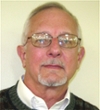 Bob Muir will introduce the lecture, which takes 30 minutes, then follow the lecture by asking our ICL group for their opinions about the values of the lecture (if any), their own experiences with mathematics in education and life, whether they find the subject worth pursuing in ICL courses down the road, etc.
Bob Muir will introduce the lecture, which takes 30 minutes, then follow the lecture by asking our ICL group for their opinions about the values of the lecture (if any), their own experiences with mathematics in education and life, whether they find the subject worth pursuing in ICL courses down the road, etc.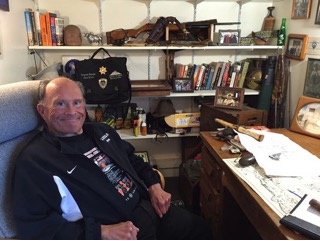 John Ritter was born and raised in Salem. When he was ten, his family moved from D Street to a farm in West Salem. He attended St. Joseph Catholic School and Serra Catholic High School.
John Ritter was born and raised in Salem. When he was ten, his family moved from D Street to a farm in West Salem. He attended St. Joseph Catholic School and Serra Catholic High School.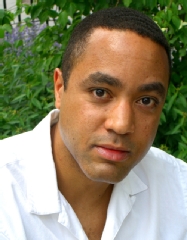
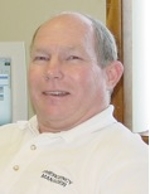
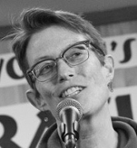 Description: A poet by training and profession, I never considered writing a novel until Sylvia Plath pushed me. It was “Daddy” and students’ responses to “You do not do, do not do/ any more, black shoe…” that did me in. In this presentation, you’ll gain an overview of Plath’s life and work, find out why I had to find a bigger bucket for telling the story, and write based on prompts from Plath’s work.
Description: A poet by training and profession, I never considered writing a novel until Sylvia Plath pushed me. It was “Daddy” and students’ responses to “You do not do, do not do/ any more, black shoe…” that did me in. In this presentation, you’ll gain an overview of Plath’s life and work, find out why I had to find a bigger bucket for telling the story, and write based on prompts from Plath’s work. 